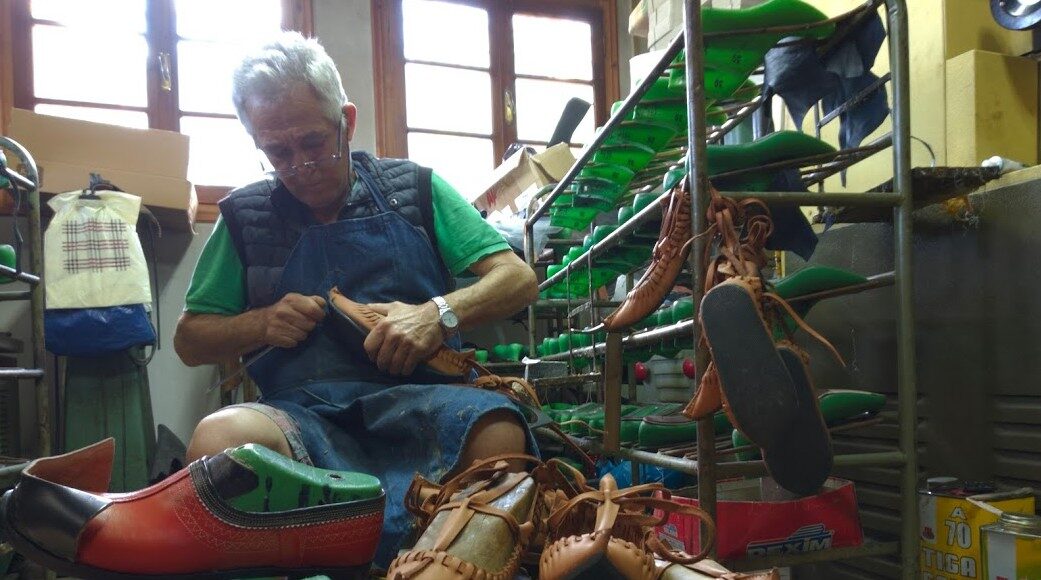By Panagiotis Dalatariof
The history of the name Kogias begins in 1910. The founder was Antonios Kogias who, thanks to his excellent art, became known beyond the borders of Thessaly. He manufactured pigskin tsarouchia and other traditional footwear.
Today the art of making tsarouchia is continued by his grandchildren Pavlos and Elias in Kastania, Karditsa, where grandfather Antonios once founded the first workshop.
With the help of Mr Pavlos Kogias, we will… take a walk into history, learn about the origins of tsarouchia, the types that exist and how they began to be a hallmark of the presidential guard.
“On the occasion of the Greek National Day of the 25th of March we must inform your readers that in 1821 they wore no tsarouchia. The word tsarouchi comes from the Turkish word “tsarik”, which means shoe.
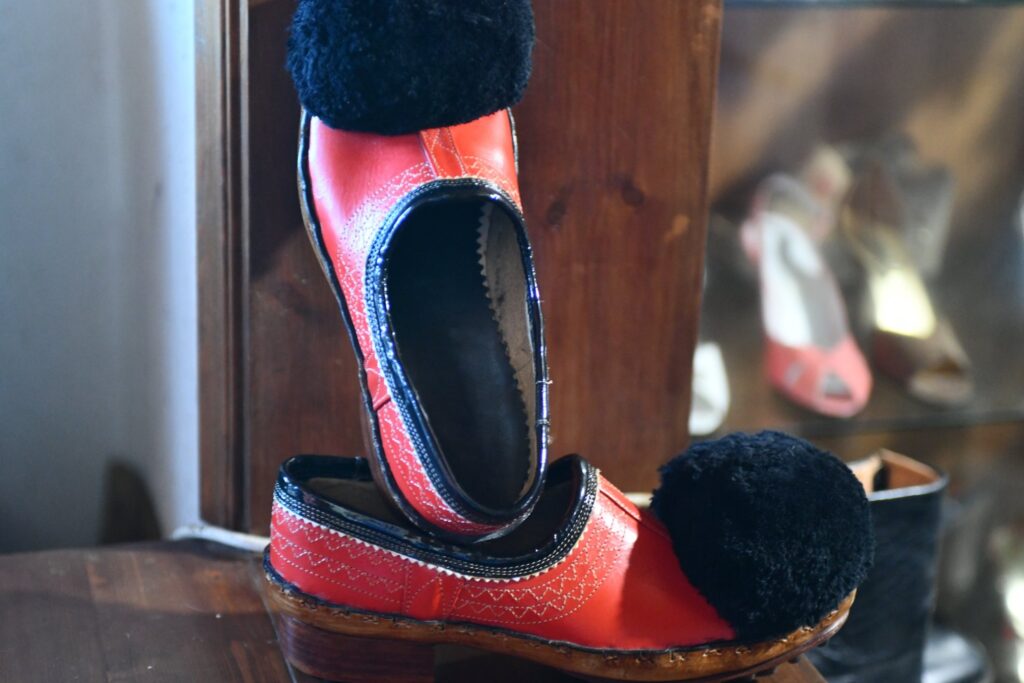
“Back then, people wore shoes made of pigskin, the ‘gourounotsaroucha’ as we call them, or shoes made of calf skin, which they tied with straps. This kind of shoe was pointy. The Greeks put a tassel on it and made it Greek. This tassel was for purely aesthetic reasons.
“Tsarouchi as we know it was glorified in the Balkan wars.
“The shoe also has a sexuality. Women wear them for rocking. It denotes a masculinity or a femininity and this has existed naturally since then”, Pavlos Koyias tells The Greek Herald.
TGH: Are tsarouchia in demand in today’s market?
“Yes, the tsarouchia are in demand. They do not appeal to a lot of people, but there is demand. The main interest exists from clubs and associations engaged in traditional dances.
“Dances preserve our tradition. There is a new world that loves traditional dances. I think we’re on track. Tradition is the last stronghold against anthellinism that we see existing.
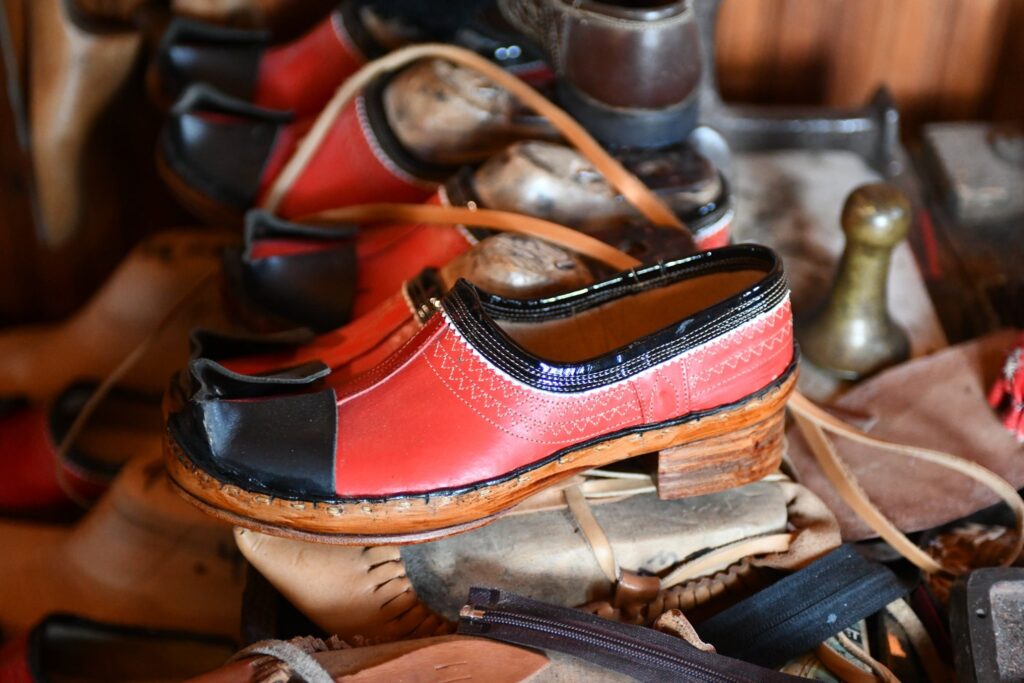
“It brings us closer with our history, dances, songs, traditions, customs, food. It reminds us of our presence as a nation and our roots. You agree, too, I imagine…
“We distance ourselves from this “modernity” that existed and tradition is the refuge for many. And the events held by many clubs and associations help to keep our traditions alive”, says Pavlos Koyias in The Greek Herald.
TGH: What are the types of tsarouchia you manufacture?
” There are two kinds: the Sarakatsanika with nails. Here we see that there are timber nails on the soles. Then there was no technology and so they would take a piece of leather, soak it and nail it. When it dried, it became very strong.
“The second kind is Gianniotika or tailormade. Here we have a clever technique, with the seam line done on the side. As a result, the seam did not come into contact with the ground and so there was no friction, and therefore the tsarouchi lasted longer”.
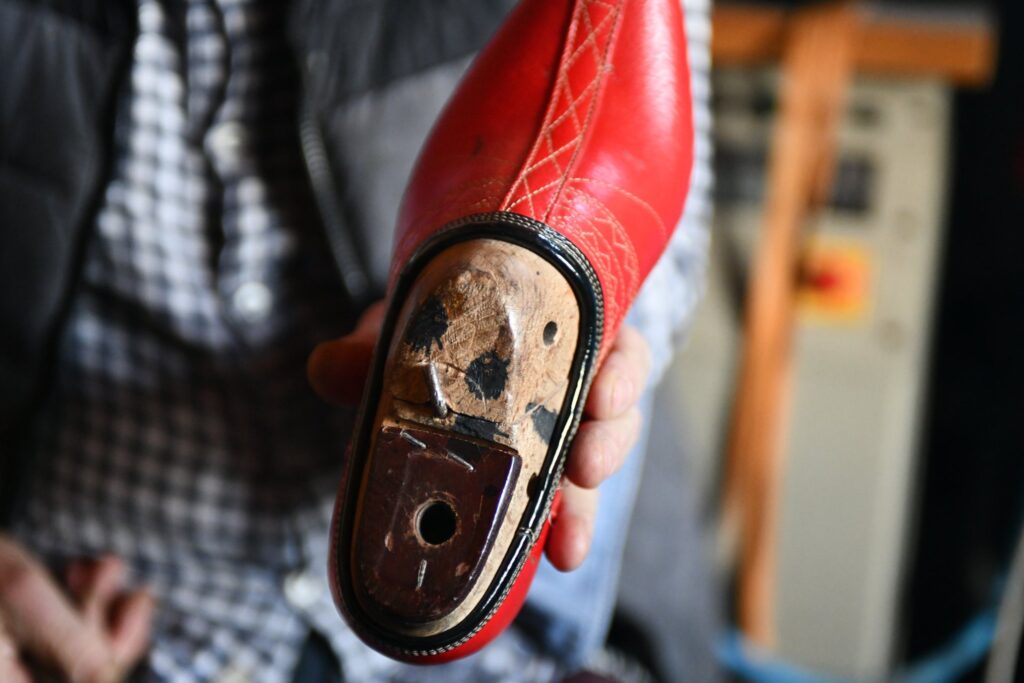
TGH: What technique do you follow today?
“This technique is not followed. Sewing has changed, today we also have technology in our lives, and there is evolution in the making of tsarouchia. Also, in this way tsarouchi is cheaper, while the time of their manufacture is shorter.
If the Gianniotiko was handmade today, we could manufacture from one to five tsarouchia a day.”
TGH: You mentioned there was a demand from clubs and associations. Was there interest from abroad?
“Yes, of course. We have sent tsarouchia to Australia, Canada, Germany and especially America.
“In Australia, we sent a pair to a man named John who lives in Sydney. I can not remember his surname.
“From Germany they asked us for a theatrical, but we can say that the country we have sent most of the tsarouchia is America, where there is a shop owner who sells traditional costumes and asks us for plenty of merchandise.”
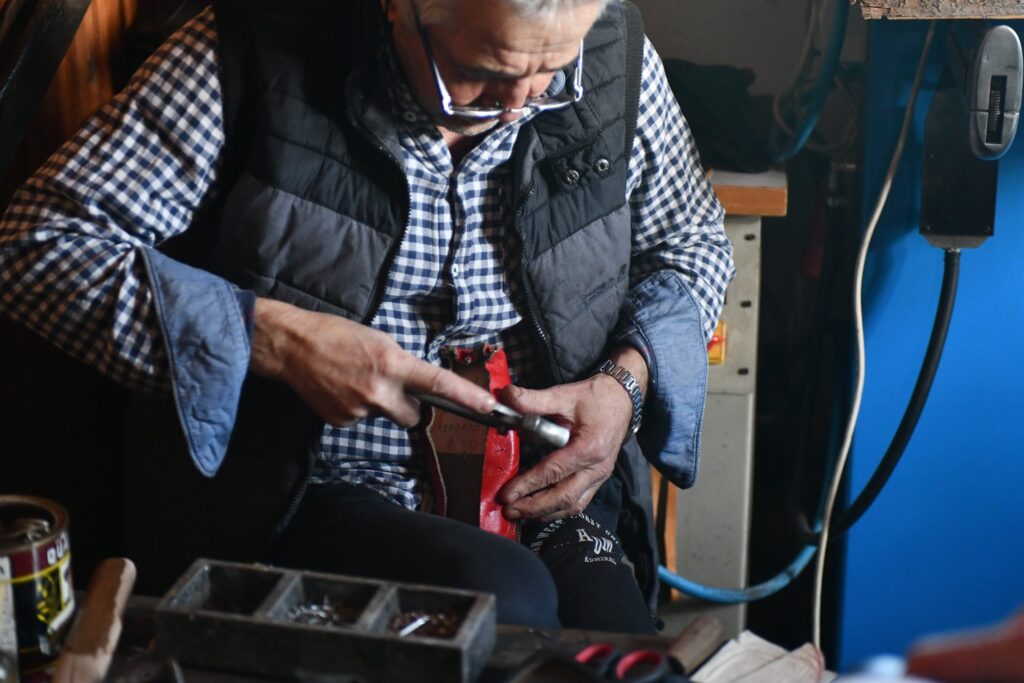
TGH: Do you supply the presidential guard with tsarouchia?
“The Presidential Guard has a craftsman of its own. We make tsarouchia that meet the standards of the tsarouchia of the presidential guard, but they are very expensive. They can cost even three times the cost of ordinary tsarouchia. That is, if the common tsarouchia cost 80 euros, these will cost 250 euros”.
TGH: What is the usefulness of nails?
“Today they do not have any usefulness other than the sound they make and it has become characteristic of them, especially when tsoliades hit the tsarouchia on the ground.
“They used to put nails on them in so they wouldn’t deface quickly. Back then people had no shoes. They wore tsarouchia and put nails or pedals on them to last longer. Later when the car tires came out, they cut tires and sewed them with a special technique on the soles. Their role was utilitarian, that is.”

TGH: Is there a future in the art of making tsarouchia?
“This sector has sounded the alarm. We are one of the last workshops in Greece. There are no craftsmen. Unfortunately, we have nowhere to pass on our knowledge and experience. My brother and I are nearly 60 years old, we have some years ahead of us and we are optimistic that this art will not fade.”
…………
A tsarouchi (Greek: τσαρούχι; plural: τσαρούχια; from Turkish çarık) is a type of shoe, which is typically known nowadays as part of the traditional uniform worn by the Evzones of the Greek Presidential Guard.
